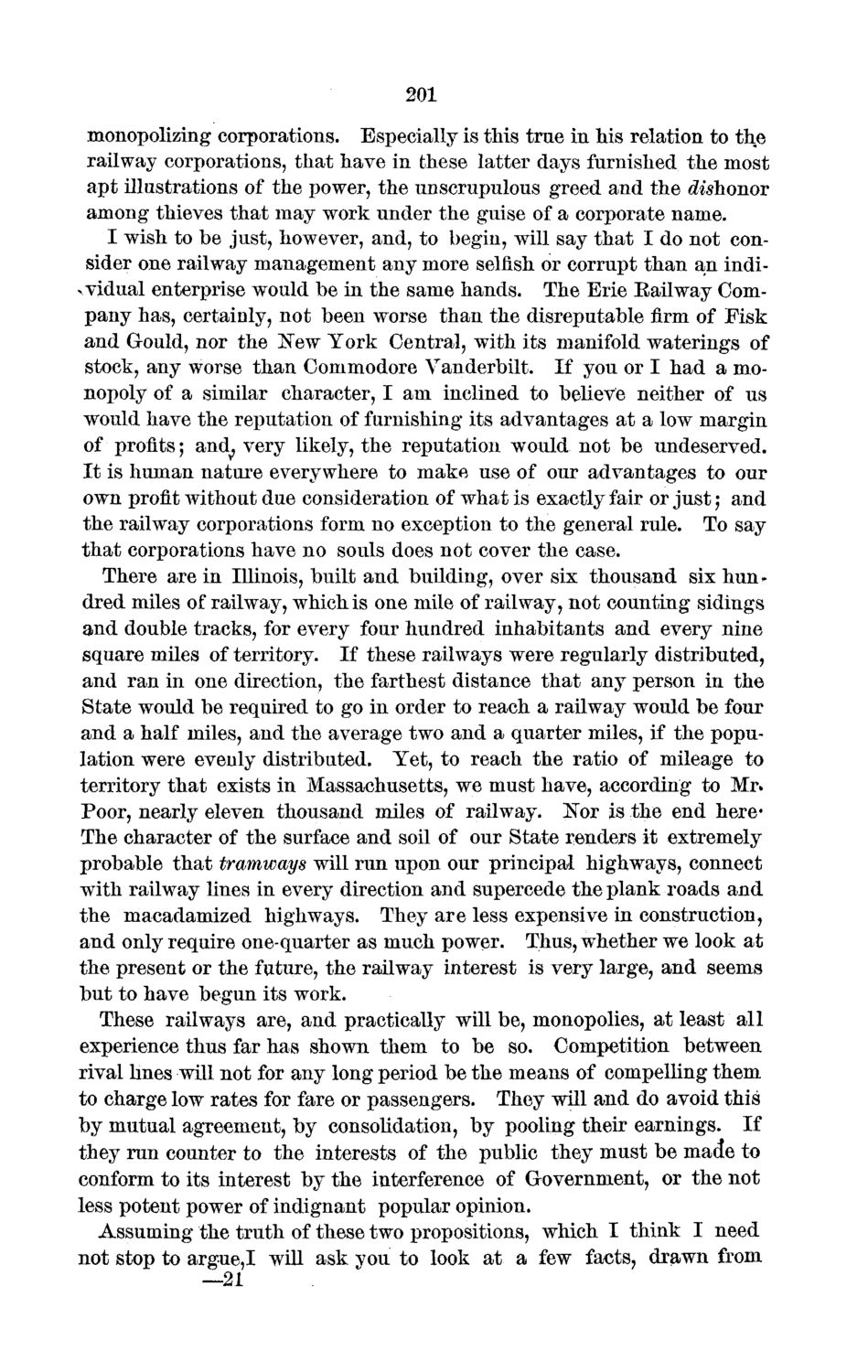| |
| |
Caption: Board of Trustees Minutes - 1872
This is a reduced-resolution page image for fast online browsing.

EXTRACTED TEXT FROM PAGE:
201 monopolizing corporations. Especially is this true in his relation to the railway corporations, that have in these latter days furnished the most apt illustrations of the power, the unscrupulous greed and the ^ h o n o r among thieves that may work under the guise of a corporate name. I wish to be just, however, and, to begin, will say that I do not consider one railway management any more selfish or corrupt than an indiv i d u a l enterprise would be in the same hands. The Erie Eailway Company has, certainly, not been worse than the disreputable firm of Fisk and Gould, nor the New York Central, with its manifold waterings of stock, any worse than Commodore Yanderbilt. If you or I had a monopoly of a similar character, I am inclined to believe neither of us would have the reputation of furnishing its advantages at a low margin of profits; and, very likely, the reputation would not be undeserved. It is human nature everywhere to make use of our advantages to our own profit without due consideration of what is exactly fair or just) and the railway corporations form no exception to the general rule. To say that corporations have no souls does not cover the case. There are in Illinois, built and building, over six thousand six hun * dred miles of railway, which is one mile of railway, not counting sidings and double tracks, for every four hundred inhabitants and every nine square miles of territory. If these railways were regularly distributed, and ran in one direction, the farthest distance that any person in the State would be required to go in order to reach a railway would be four and a half miles, and the average two and a quarter miles, if the population were evenly distributed. Yet, to reach the ratio of mileage to territory that exists in Massachusetts, we must have, according to Mr. Poor, nearly eleven thousand miles of railway. Nor is the end h e r e The character of the surface and soil of our State renders it extremely probable that tramways will run upon our principal highways, connect with railway lines in every direction and supercede the plank roads and the macadamized highways. They are less expensive in construction, and only require one-quarter as much power. Thus, whether we look at the present or the future, the railway interest is very large, and seems but to have begun its work. These railways are, and practically will be, monopolies, at least all experience thus far has shown them to be so. Competition between rival lines will not for any long period be the means of compelling them to charge low rates for fare or passengers. They will and do avoid this by mutual agreement, by consolidation, by pooling their earnings. If they run counter to the interests of the public they must be made to conform to its interest by the interference of Government, or the not less potent power of indignant popular opinion. Assuming the truth of these two propositions, which I think I need not stop to argue,I will ask you to look at a few facts, drawn from —21
| |